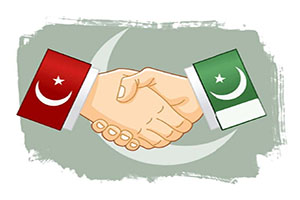
Turkiye to continue be on Pakistan’s side in good, bad times
Turkish President Recep Tayyip Erdogan said that his country will continue to be by Pakistan’s side in good and bad times, as it has in the past and in the future. In a post on X, Erdogan said that the brotherhood between Türkiye and Pakistan, is enjoyed by very few nations in the world and “is one of the best examples of true friendship”. As Türkiye, we attach great importance to the peace, tranquillity and stability of Pakistan, the president added. Moreover, President Erdogan said he appreciates the sensible, patient policy of the Pakistani state, “which prioritizes dialogue and compromise in resolving disputes”. The president was replying to Prime Minister Shehbaz Sharif’s post on X in which the PM praised Erdogan, describing him as a “dear brother” and applauding Ankara’s ironclad backing of Pakistan in tough times. PM Shehbaz said he was “profoundly touched” by what he called his “dear brother” Erdogan’s full-throated support and “unwavering solidarity” with Pakistan.
|
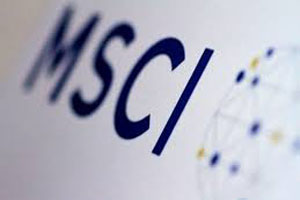
MSCI adds 3 Pakistani cos to Frontier Market Index, 4 to FM Small Cap Index
Morgan Stanley Capital International (MSCI) Inc., a leading provider of critical decision support tools and services, announced the addition of three Pakistani companies as constituents on its Frontier Market (FM) and four companies in its FM Small Cap Index as part of its May 2025 index review. In the MSCI Frontier Markets Indexes, three Pakistani companies have been added, stated MSCI in the note. These companies include Fauji Cement Co, DG Khan Cement Co and Maple Leaf Cement. These changes are to take effect from the close of May 30, 2025. This takes the total number of constituents in the MSCI Frontier Index to 26 from 23 earlier. In September 2021, Pakistan was downgraded from its status as an emerging market, a little over four years after it was reclassified from the Frontier Markets (FM) Index by MSCI.
|
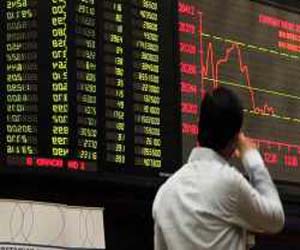
New law proposes real-time monitoring of stocks
The government has introduced a landmark bill in the National Assembly aimed at digitally tracking petroleum products from import and production to retail sales in a bid to curb smuggling and adulteration, which cause massive revenue losses estimated at Rs300-500 billion annually besides affecting environment and vehicle engines. The Petroleum (Amendment) Act, 2025 moved by Petroleum Minister on May 12th, seeks to amend the 1934 Petroleum Act. The draft law envisages new clauses for information technology-based tracking of petroleum products to curb smuggling and to initiate strict actions against illegal transportation and decantation of petroleum products, along with actions to be taken against illegal petrol pumps. All local refineries and major oil marketing companies have been demanding both individually and from their collective forums that the government take stringent measures at borders and at domestic locations of production and sale to control smuggling of petroleum products, including LPG, as it negatively affected their businesses and caused substantial revenue losses to the government. The new clauses also empower the government to enable confiscation of petroleum products, equipment, machinery, transportation and storage facilities by deputy commissioners, assistant commissioners and designated officers under the Customs Act, 1969, before and after conviction to provide for stringent administrative action against illegal activities. For swift legal proceedings, trial powers for offences under the act will be vested in sessions courts, while administrative enforcement will rest with deputy and assistant commissioners.
|
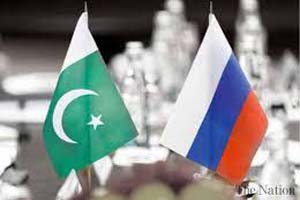
Pakistan, Russia agree to establish new steel mills in Karachi
In a bid to boost-up bilateral relations Russia and Pakistan have agreed to establish a new steel mill in Karachi. The development came here during a follow up meeting between Special Assistant to the Prime Minister (SAPM) on Industries and Production Haroon Akhtar Khan and a Russian delegation led by Denis Nazaroof, a visiting representative of Russia. The Russian official assured Pakistan of his country’s commitment to build a steel mill in Karachi, also inviting Pakistan to participate in an exhibition being organized by the Russian Ministry of Industry in Moscow. The primary focus of the discussion was the establishment of new steel mills in Pakistan and both parties engaged in extensive talks on the potential collaboration between Pakistan and Russia in setting up a new steel mill in Karachi. The two countries agreed to form a joint working group to facilitate the development and implementation of this initiative. Akhtar Khan emphasised the prime minister’s vision to increase investments in Pakistan. He highlighted that this is an opportune time for foreign investors to invest in the country, noting that Pakistan has evolved as a strong and safe destination for international investment and business. Furthermore, Khan underscored the potential for a remarkable collaboration between Pakistan and Russia in the steel industry, which could prove beneficial for both nations. Pakistan has informed the Russian official that the government of Pakistan has earmarked 700 acres land of Pakistan Steel Mills (PSM) for establishing a new steel mill. The proposed site is located at Karachi and is close to Port Qasim that reduces cost of transportation of raw materials. Pakistan’s industrial and agricultural experts are set to visit Russia, marking a significant step in strengthening bilateral ties between the two nations.
|

Pakistan looks to tap The Roosevelt Hotel’s value via joint venture
Defence Minister Khawaja Asif said on Monday-May 12, 2025, that the government was weighing a joint venture for The Roosevelt Hotel in New York, aiming to secure long-term financial returns from the Pakistan International Airlines-owned property. “While selling the 19-storey property may offer short-term gains or help repay some debt, a joint venture would preserve the asset and generate sustained value,” he argued during the question hour at the National Assembly. Asif highlighted that the hotel’s prime location, with two entrances and central positioning, made it a unique piece of real estate, which was unmatched in New York. “Alternatively, the government is also looking at the option of selling The Roosevelt Hotel entirely,” Asif said. In April, the Privatisation Commission Board meeting discussed various transaction structure options developed by the financial adviser, a consortium led by Jones Lang La Salle Americas Inc (JLL) for the privatisation of The Roosevelt Hotel. The board also finalised its recommendations for the transaction structure for presentation to the Cabinet Committee on Privatisation (CCOP). The options include selling the building as it is or opting for a joint venture with a top-tier developer, which has the potential to generate proceeds five times higher, according to a statement after the meeting. The national carrier last month reported that it has posted an annual profit for the first time in more than two decades, ahead of a second attempt by the government to sell the airline. Pakistan had offloaded nearly 80% of the airline's legacy debt and shifted it to government books ahead of the privatisation attempt.
|
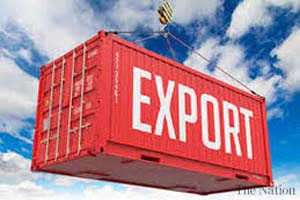
Pakistan’s exports to EU rise by 8.18% in 9MFY25
Pakistan’s exports to European countries saw a growth of 8.18% in the first nine months of the current fiscal year (July-March FY25) compared to the previous year, reaching $6.782 billion, up from $6.269 billion in the same period last year. This growth was primarily driven by higher shipments to western and southern European states. The increase in exports was attributed to a rise in demand for Pakistani textile and clothing products, especially in western, eastern, and northern European regions. Despite a decline of 3.12% in FY24, Pakistan’s exports to the European Union (EU) have shown a positive trend in FY25, supported by the Generalized Scheme of Preferences (GSP+) status, which grants duty-free access to many European markets. Western Europe, including countries such as Germany, the Netherlands, France, Italy, and Belgium, accounted for the largest share of exports, with a 9.42% increase in shipments to $3.403 billion in 9MFY25, compared to $3.110 billion in 9MFY24. Notable increases in exports were seen in Germany (up 13.54% to $1.274 billion), the Netherlands (up 9.35% to $1.122 billion), and France (up 10.88% to $420.56 million). Exports to northern Europe also rose by 17.49% to $559.52 million, while exports to eastern Europe grew by 15.57% to $539.21 million. However, exports to southern Europe showed only modest growth, increasing by 2.88% to $2.281 billion. The UK, despite Brexit, continues to be a key market for Pakistani exports, with shipments rising 6.07% to $1.624 billion in 9MFY25, up from $1.531 billion last year.
|
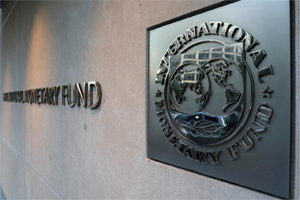
IMF kicks off virtual talks on Pakistan’s 2025-26 budget begins on May 14th
The International Monetary Fund (IMF) will begin virtual discussions on Pakistan’s upcoming budget for fiscal year 2025-26 on Wednesday, as the visit of its mission to Islamabad was delayed due to regional security concerns. The virtual talks will continue until May 16, 2025, with discussions focusing on key fiscal issues, including taxation measures and budget targets. Despite this change in schedule, the IMF emphasized that the delay will not affect the agenda or timeline of the budget discussions. Earlier, Finance Minister Muhammad Aurangzeb said that the budget would be finalised within the next three to four weeks, and negotiations with the IMF are scheduled to run from May 14 to May 23. As the government moves forward with the budget preparations, the IMF has appointed Iva Petrova, a Bulgarian economist, as the new Mission Chief to Pakistan. She will join the talks alongside Nathan Porter, the outgoing mission chief. Petrova. Pakistan is set to present its budget for the 2025-26 fiscal year on June 2. According to the news report, the IMF has set ambitious targets for Pakistan’s fiscal policy, including a 1.6% primary budget surplus and tax collection of approximately Rs14.3 trillion, which represents 11% of the country’s GDP. The IMF will assess whether Pakistan can realistically meet these targets and will review the effectiveness of the government’s planned reforms.
|
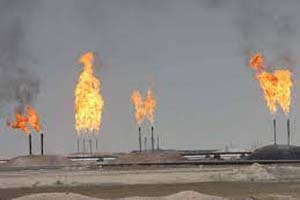
DGPC provisionally awards 10 onshore exploration blocks to MariEnergies
The Directorate General of Petroleum Concessions (DGPC) has provisionally awarded 10 new onshore exploration blocks to MariEnergies, one of Pakistan’s largest exploration and production (E&P) companies. “These blocks have been awarded after competitive bidding on the basis of work units committed by various E&P companies in the Pakistan E&P Onshore Bid Round 2025 (30th April 2025) conducted by the DGPC,” MARI said in its notice to the Pakistan Stock Exchange. According to the notice, MARI will operate seven blocks as an operator. At the same time, the remaining three will be developed under joint venture (JV) arrangements “one each with Oil and Gas Development Company Limited (OGDCL), Pakistan Petroleum Limited (PPL) and Prime Global Energies Limited (Prime) as operators in respective blocks”. It added that Government Holdings Pvt Ltd (GHPL) and Turkish Petroleum Overseas Company (TPOC) are also JV Partners. Out of the 10 blocks awarded, eight are located in Balochistan, namely, Ziarat North, Ahmad Wal, Padag, Chagai, Dalbandin, Merui Merui West and Kalat South. The remaining two, i.e. Khiu-II and Sukhpur-II, are located in Punjab and Sindh, respectively. Earlier this month, MARI discovered gas production from its Soho-1 exploratory well in the Sujawal Block in Sindh.
|
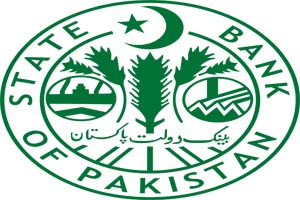
SBP lowers policy rate to 11% as inflation outlook improves, but is the inflation fight over?
The State Bank of Pakistan’s Monetary Policy Committee (MPC) delivered its fifth consecutive rate cut on Sunday, lowering the benchmark policy rate by 100 basis points to 11%. The decision, justified by sharp declines in food and energy prices, reflects growing confidence in the disinflation trend. Yet, beneath the headline numbers lies a far more complex economic picture one that may demand greater caution than the MPC is signalling. At first glance, the latest rate cut appears well-supported by data. Inflation, which had soared to a record 38% in May 2023, has plummeted to just 0.3% as of April 2025. This dramatic fall has turned real interest rates positive for the first time in years, giving the central bank the flexibility to stimulate economic activity without immediately risking inflationary pressures. The MPC noted rising consumer and business confidence, reflected in rebounding retail sales and improved credit demand, and projected further economic acceleration. As per Governor, GDP growth in the 3rd quarter (Jan-Mar) would be better than first 2 quarters. As a result, Central bank has maintained it GDP growth target at 2.5-3.5% for FY25. To highlight, GDP growth in first and second quarters was 1.3% and 1.7%, respectively. The SBP governor also commented that, current import numbers are line with SBP projections and are manageable.
|

Govt explores taxing online shopping in upcoming budget
FBR proposes 3% GST deduction on cash-on-delivery orders, with remaining 15% collected by manufacturers in a bid to tax e-commerce transactions The government is exploring various options to introduce taxation on online shopping in the upcoming fiscal year 2025-26 budget as part of efforts to expand the tax base and boost revenue, E-commerce, which has become an integral part of daily life for many upper and middle-income households in urban areas, has been identified as a potential source for increasing tax collection. The move comes as the government seeks to align its fiscal policies with the International Monetary Fund (IMF) program, which includes curbing expenditures and increasing tax revenues to reduce the budget deficit to 5.1% of GDP for the next fiscal year. Despite previous efforts, successive governments have struggled to bring millions of retail businesses into the tax net. The incumbent government’s Tajir Dost Scheme also failed to attract retailers, prompting a shift in focus to the growing e-commerce sector.
|
|
© 2025 Alpine Marine Services Private Limited
all rights reserved
|
|
|